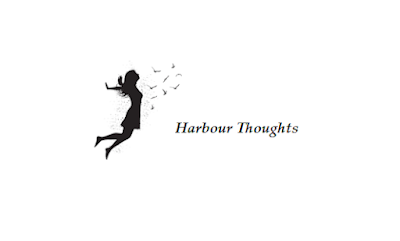Tidings from the Party
By Adi Sidharta
this night is a lonely night
wrought up with anxiety of birth
this night is a sacred night
bearing tidings from the party
bidding farewell to yesterday
hailing the day of tomorrow
I kiss this night
which arouses morning in my heart
I kiss you my party
dawn in this day
tidings from the party unfurl the banners
of battles against myself
confront me with this choice
of delight in life
abandoning personal passions
or fading away before death
tidings from the party have shown
the road which ends defeats.
Source: Contemporary Progressive Indonesian Poetry, 1962
Poem Analysis:
Adi Sidharta’s poem Tidings from the Party serves as a profound meditation on the themes of hope, struggle, and personal transformation within the context of collective political consciousness. Through a blend of emotional depth and political imagery, Sidharta captures the tension between individual desires and the larger societal movement represented by “the party.”
Theme of Transition and Transformation
The poem opens with the line “this night is a lonely night,” immediately establishing a mood of isolation and uncertainty. The phrase “wrought up with anxiety of birth” suggests a critical moment of change, akin to the tension experienced during labor. This metaphorical birth alludes to the emergence of a new political or social order, signifying hope amid darkness. The juxtaposition of loneliness with the sacred nature of the night—“this night is a sacred night”—implies that transformative moments often arise from solitude and reflection.
The references to “bidding farewell to yesterday” and “hailing the day of tomorrow” further emphasize the theme of transition. Here, the poet signifies a break from the past, encouraging the reader to look forward to a brighter future. This sense of renewal aligns with revolutionary ideologies, reinforcing the idea that change is both necessary and possible.
Emotional Resonance and Personal Conflict
The speaker’s emotional connection to the party is articulated through the act of kissing: “I kiss this night / which arouses morning in my heart.” This intimate gesture conveys a deep affection for the party, presenting it as a source of inspiration and hope. The imagery of dawn signifies new beginnings and possibilities, suggesting that the party symbolizes enlightenment and renewal.
However, this personal affection is contrasted with the internal struggle presented in the lines: “tidings from the party unfurl the banners / of battles against myself.” This conflict illustrates the tension between individual passions and collective responsibility. The choice the speaker faces—“delight in life / abandoning personal passions / or fading away before death”— encapsulates the emotional turmoil experienced when aligning personal desires with broader social commitments. The use of “battles” emphasizes the difficulty of this internal conflict, highlighting the personal sacrifices often required in the pursuit of collective goals.
Collective Ideology and Hope
The repeated invocation of “tidings from the party” serves as a rallying cry, suggesting that the message of the party embodies a collective ideology that transcends individual struggles. The phrase “the road which ends defeats” reinforces the idea that the party provides a pathway toward victory and resilience against adversity. This line reflects the transformative power of collective action, suggesting that through unity and shared purpose, individuals can overcome their struggles.
The poem’s focus on the party as a source of guidance and hope reinforces the idea that political movements can foster personal growth and empowerment. The use of the term “banners” symbolizes the call to arms and the solidarity among those committed to the cause, further emphasizing the importance of collective identity.
Structure and Language
Sidharta employs a free verse structure, allowing for fluidity in expression and a natural flow of thoughts and emotions. This lack of rigid form mirrors the unpredictable nature of both personal and political journeys, reinforcing the themes of transformation and struggle.
The language is rich with sensory imagery, particularly in the opening lines. Phrases like “lonely night” and “sacred night” evoke a strong emotional response, immersing the reader in the speaker’s experience. The contrast between darkness and light throughout the poem, especially with the imagery of “morning” and “dawn,” creates a powerful sense of hope and renewal.
A Reflection on Hope and Commitment
Tidings from the Party by Adi Sidharta is a poignant exploration of the interplay between personal desires and collective aspirations. Through vivid imagery and emotional depth, the poem captures the speaker’s internal struggles while emphasizing the transformative power of political engagement.
The themes of transition, emotional conflict, and hope resonate throughout the poem, reinforcing the idea that individual sacrifice is often necessary for the greater good. In celebrating the party as a source of inspiration and guidance, Sidharta underscores the potential for collective action to foster personal and societal transformation.
Tidings from the Party serves as a powerful reminder of the resilience of the human spirit in the face of adversity. By embracing the message of the party, the speaker symbolizes a commitment to a brighter future, embodying the hope that drives social change and personal growth. In this way, the poem becomes not just a reflection on individual struggle, but a call to action for those seeking to create a better world.
